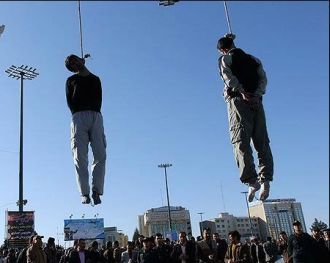
Ahmed Shaheed said Iran carried out at least 753 executions in 2014, up from 687 in 2013 and 580 in 2012. Nearly half of the executions were for drug-related crimes, he said, and he questioned whether they would meet the internationally accepted norm for death penalty cases of “most serious crimes.” That is commonly interpreted to mean the taking of a human life.
Shaheed’s comments came in a harshly critical report that rebuked Iran for a variety of abuses, including torture and persecution of religious minorities.
Thirty-six human rights groups, including Amnesty International, urged the UN to continue the monitoring by Shaheed. “The situation in Iran remains one of systemic human rights violations that are deeply rooted in laws, policies and practices that require the sustained attention of the council,” they said.
Shaheed, 50, a former Maldivian foreign minister and career diplomat, also voiced his concerns over reports “of insufficient or non-existent access to medical services for detainees,” and he warned, “some were at risk of dying” because of poor medical attention.
The report also accused Iran of targeting journalists and bloggers, saying at least 13 have been arrested since July on a range of charges, including “national security crimes,” “propaganda against the system,” and “insulting the Supreme Leader.”
The report also documented widespread restrictions and persecution of religious minorities. It said that in the last four months of 2014, security forces in Esfahan, Tehran, Shiraz, Hamadan, Karaj and Semnan arrested at least 24 followers of the Baha’i faith, bringing to 100 the number of Baha’is in detention. More than 92 Christians are detained for religious activities, the report said.
Sunni Muslims, the report noted, have not been allowed to build a new mosque in Tehran since 1979.
In its response to the UN report, Iran said it “rejected the majority of the allegations.”
Shaheed said laws that “restrict the press, criminalize expression, limit access to information and give rise to the ongoing arrests of civil society activists and members of vulnerable groups, including religious and ethnic minorities,” should be rescinded.
Shaheed has not been allowed to visit Iran. His report is based on interviews with dozens of people contacted in the Islamic Republic and with exiles in Western Europe.
